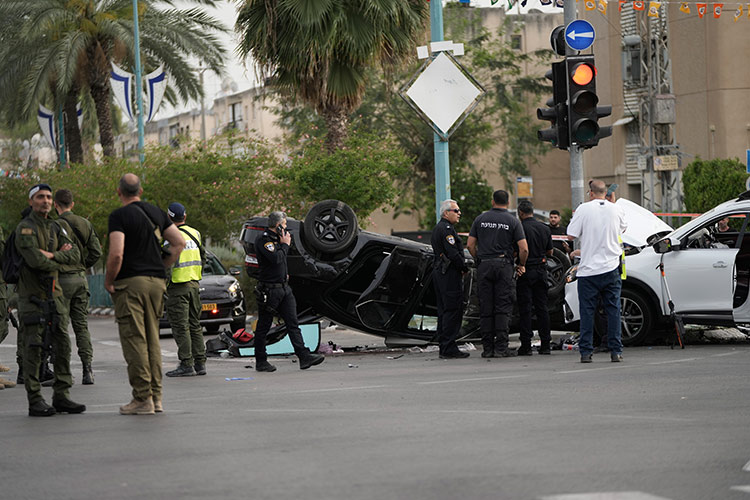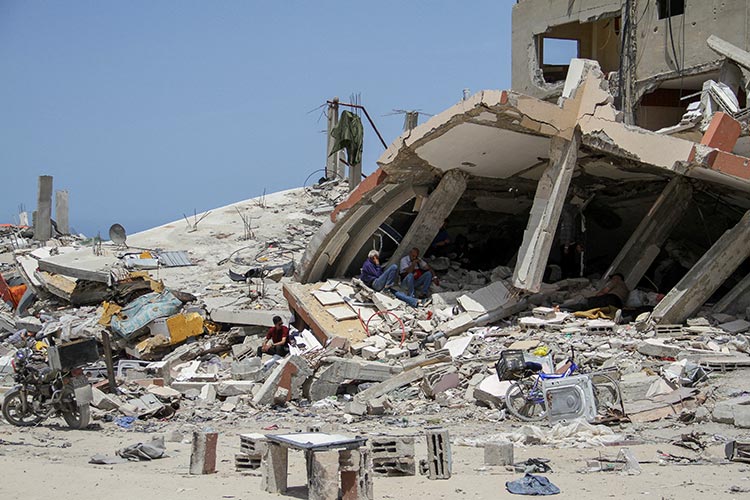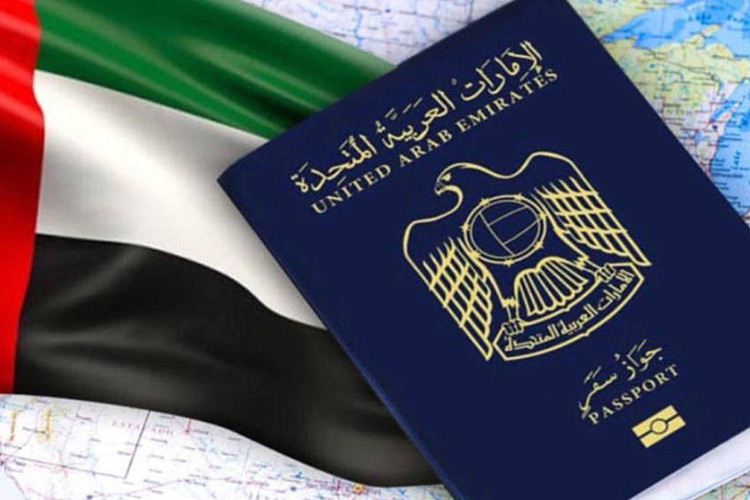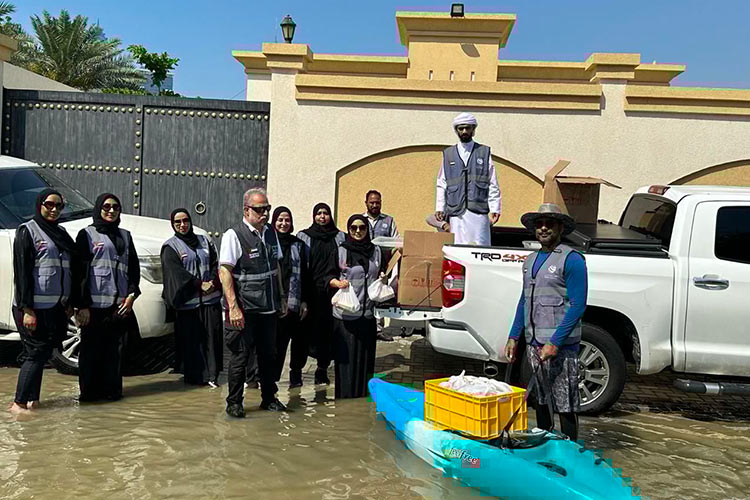Anger, grief sweep Mosul as ferry disaster toll hits 100
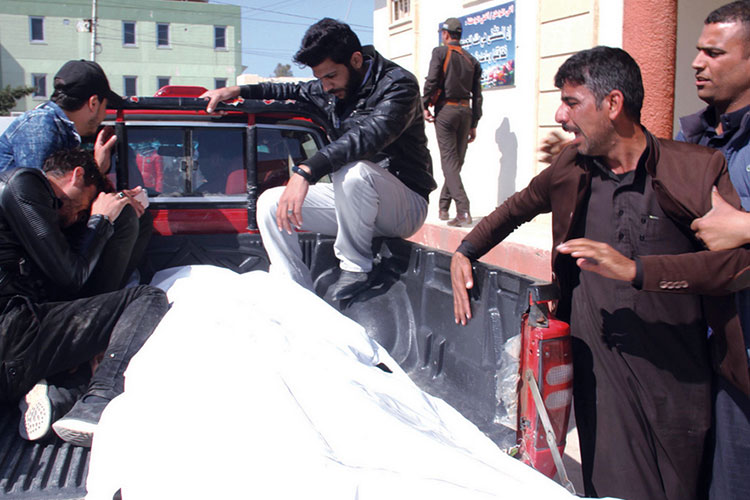
Relatives mourn over the body of a passenger who died in the ferry accident while crossing Tigris River, outside a morgue in the northern Iraqi city of Mosul on Friday. Agence France-Presse
Residents of Iraq’s second city, scarred by years of militant rule, demanded justice as Prime Minister Adel Abdel Mahdi decreed three days of national mourning following Thursday’s accident.
The capsize of the boat, which was carrying families to a recreational spot on an island in the Tigris River, was the single most deadly incident in Mosul since the city was recaptured from Daesh in a bloody and destructive conflict in 2017.
Mosulites had resumed the annual festivities this year for the first time since Iraqi forces ousted Daesh group following years of brutal militant rule.
But the celebrations turned to tragedy when the overcrowded vessel ran into trouble as it headed to a popular picnic site across the Tigris River.
Mosul security officials blamed the accident on high water levels and overcrowding on the boat.
Hundreds of relatives of victims and residents gathered on Friday at the scene of the accident, where prayers were held for the dead.
Many said the disaster could have been avoided, and chanted “corruption is killing us!”
“We want those responsible to be brought to justice,” said Mohammed Adel, 27, whose father was among those who died.
He accused officials of failing to enforce safety standards.
Abu Salem, who lost his wife and two children in the accident which also coincided with mother’s day in Iraq, pinned blame for the tragedy on profit motives and the corruption that is endemic in Iraq.
The managers of the picnic site were “criminals... I want them to pay up and I won’t leave here until they do”, the 50-year Iraqi said.
“Corruption and mismanagement are the reason for what happened. These were families trying to have fun, and they ended up bodies in the river,” said Mohammed Thannon, a student who was among the protesters.
“We reject visits by officials. They’re weak and corrupted and have failed to improve Mosul since the nightmare of Daesh,” he said.
Younes Abdullah, a 35-year-old civil servant, said: “We need action not words. Those who caused the tragedy must be brought before justice and executed.”
Medical sources raised the death toll from Thursday’s capsize to at least 90 people as rescue teams continued to search for the drowned and missing.
Reflecting the popular mood, Grand Ayatollah Ali Sistani, spiritual leader of Iraq’s Shiite Muslim majority, in his Friday sermon accused “the authorities in charge of supervision of not doing their job.”
Transparency International ranks Iraq in 12th place in its list of the world’s most corrupt countries.
Video footage from cameras at the picnic site, posted online, showed a severely overcrowded vessel beginning to list as water comes aboard.
As it capsizes completely, it traps dozens of people under its hull. Authorities had warned people to be cautious after several days of heavy rains led to water being released through the Mosul dam, causing the river to rise.
Videos showed a fast-flowing, bloated river and dozens of people floating in the water or trying to swim around the partly submerged boat.
Abdel Mahdi said the justice system “must do its job and the investigation must produce results on the reasons for this shipwreck.”
Prime Minister Mahdi and President Barham Saleh visited the site of the accident as the search continued for bodies, some of which were carried far downstream by the strong current.
While war and militant attacks have claimed hundreds of thousands of lives in Iraq in recent years, such accidents are relatively rare.
But corruption and the dismal state of public services in Iraq were triggers for widespread protests last year.
Daesh turned Mosul into its de facto capital after sweeping across much of the country’s north in 2014.
The city spent three years under the group’s iron-fisted rule until it was recaptured by Iraqi troops backed by a US-led coalition in 2017.
Survivors of Thursday’s disaster were treated in hospitals heavily damaged by the months-long military campaign against the militants.
Agence France-Presse / Reuters
